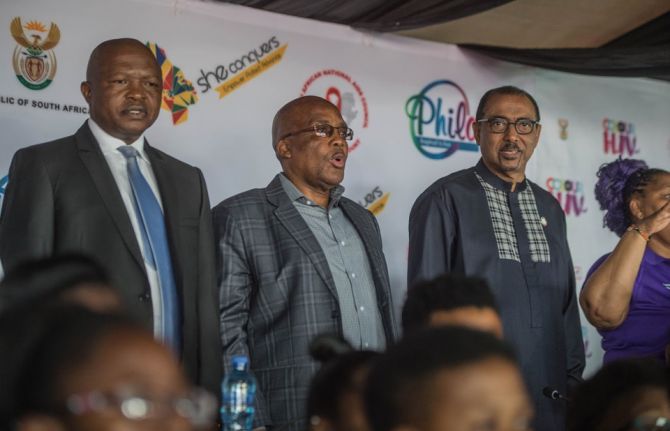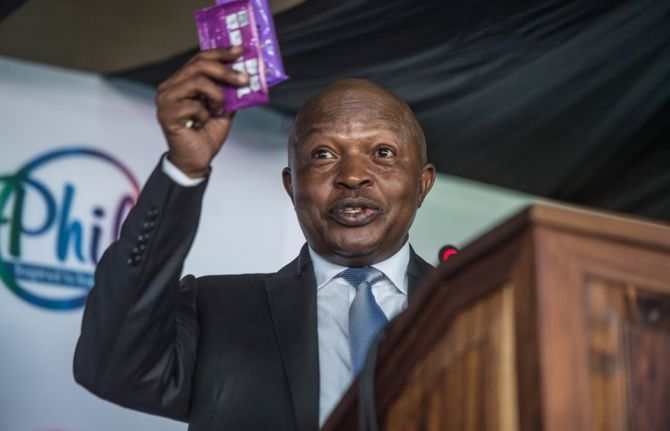



Feature Story
South Africa launches campaign to expand access to HIV treatment
04 December 2018
04 December 2018 04 December 2018On World AIDS Day, South Africa launched a multidisease national wellness campaign to accelerate screening and testing for HIV, tuberculosis, sexually transmitted infections and noncommunicable diseases, including hypertension and diabetes. The campaign, known as Cheka Impilo, is a direct response to the call by the President of South Africa, Cyril Ramaphosa, during his first State of the Nation address in February 2018 to initiate an additional 2 million people on HIV treatment by 2020, find 88 000 missing tuberculosis cases annually and screen 7 million people for noncommunicable diseases in the first year.
South Africa has made considerable progress in its AIDS response in the past decade and reported that there were more than 4.5 million people on life-saving antiretroviral therapy by the end of June 2018—20% of all people on treatment worldwide. UNAIDS estimates show that as a result the number of AIDS-related deaths in South Africa has dropped significantly, from 200 000 in 2010 to 110 000 in 2017. However, there were 270 000 new HIV infections in 2017, including approximately 77 000 among adolescent girls and young women aged 15–24 years.
The then Acting President, Deputy President David Mabuza, who is also Chairperson of the South African National AIDS Council (SANAC), urged his fellow countrymen to end gender-based violence and get tested for HIV and seek treatment if HIV-positive. “We will not walk alone. We have always had partners like UNAIDS, the Global Fund and PEPFAR walking with us, side by side, shoulders to the grindstone. We know what unity and struggle is. We are not giving in and we are not turning back,” Mr Mabuza said.
Michel Sidibé, UNAIDS Executive Director, attended the commemoration of the 30th anniversary of World AIDS Day in South Africa to show his support for the launch of the campaign. “Oppression and power imbalances must be reversed. Women and girls must be empowered and harmful masculinities must be consigned to the history books. Our girls and young women deserve a chance to live in a world with dignity and respect and free from violence and HIV,” said Mr Sidibé.
Aaron Motsoaledi, Minister of Health of South Africa, thanked Mr Sidibé for inspiring South Africa almost a decade ago to turn its AIDS response into a success story, characterized by a journey from despair to hope, and from denial to acceptance and to ownership.
Steve Letsike, Deputy Chairperson of SANAC and Chairperson of the SANAC Civil Society Forum, said, “Enough is enough. Patriarchy, sexism, misogyny, homophobia, transphobia and stigma and discrimination must end. We can do better for our people because they matter.”



